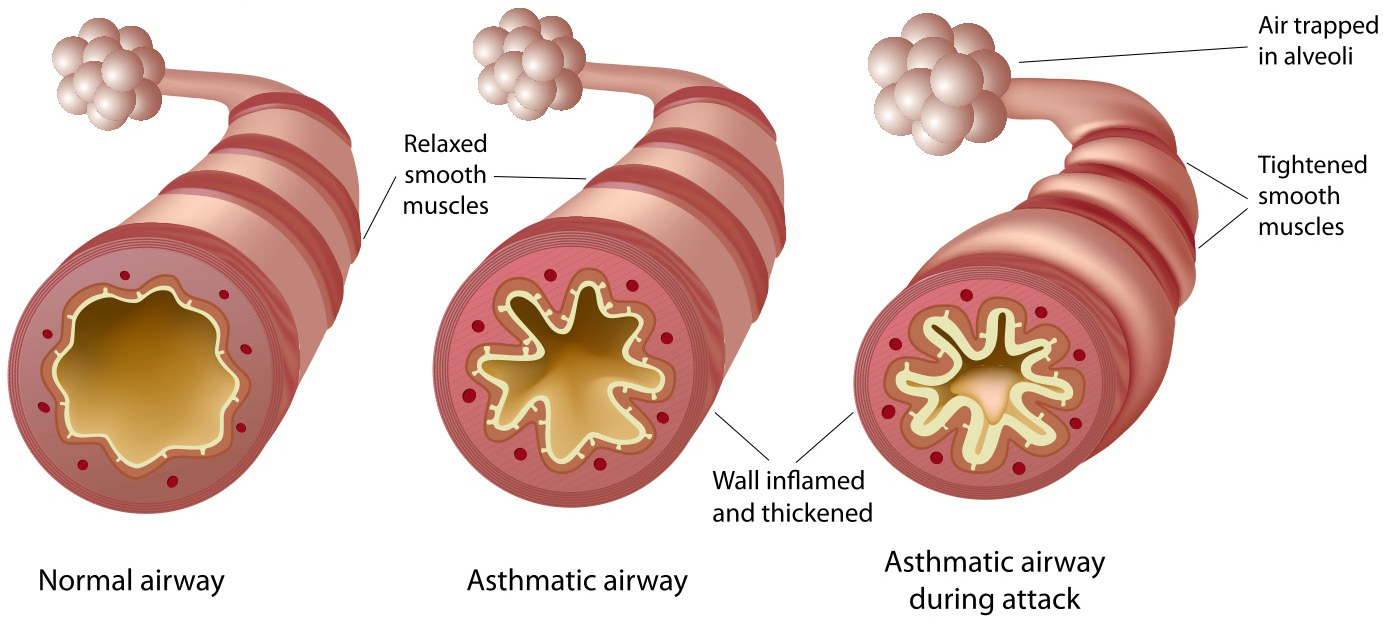What is asthma?
What is asthma?
Asthma is a condition that affects the lungs and a person's breathing. It causes the airways to swell and narrow and produce extra mucus. This can make breathing difficult and trigger coughing during the day, at night or with activity. It can also cause wheezing, breathlessness, chest tightness and shortness of breath. It is one of the most common chronic (long-term) diseases in children, but adults can also have asthma. People with asthma have it all the time, but only have asthma attacks when something bothers their lungs.

What causes asthma?
People with asthma have sensitive airways. When these airwaves becomes sensitive, they become swollen, making symptoms even worse. There are common triggers of asthma your child you should avoid. Please note that your child might not be affected by all of these.
- Tobacco and other smoke
- Strong sprays and odors
- Colds
- Exercise-induced asthma
- Weather, such as cold air
- Pet dander
- Cockroaches and rodents
- Dust and dust mites
- Indoor molds
- Pollen and outdoor molds
How can I avoid asthma triggers?
Controlling asthma
You can control asthma now by knowing the warning signs of an asthma attack, and by following your doctor's advice. How does life change when you control asthma?
- No symptoms like wheezing or coughing
- Better sleep
- No missed school or work
- Participation in physical activity
- No trips to the hospital
How is asthma treated?
- You can avoid attacks by taking your medicine exactly as the doctor tells you.
- Everyone who has asthma doesn't take the same medicine.
- Some medicines are inhaled (meaning to breathe in) with a spacer, and some are taken as a pill. There are two types of asthma medicines — quick-relief (rescue) and long-term (control). Quick- relief medicines relieve the symptoms of an asthma attack. If you need to use your quick-relief medicines more and more, visit your doctor to see if you need a different medicine. Long-term control medicines help you have fewer and milder attacks, but they don't help you while you are having an asthma attack.
- Take your long-term control medicine even when you don't have symptoms.
- Asthma medicines can have side effects, but most side effects are mild and go away quickly. Ask your doctor about the side effects of your medicines.
- Remember — UCAN! With your doctor's help, make an asthma action plan. Decide who should have a copy of your plan and where they should keep it.
